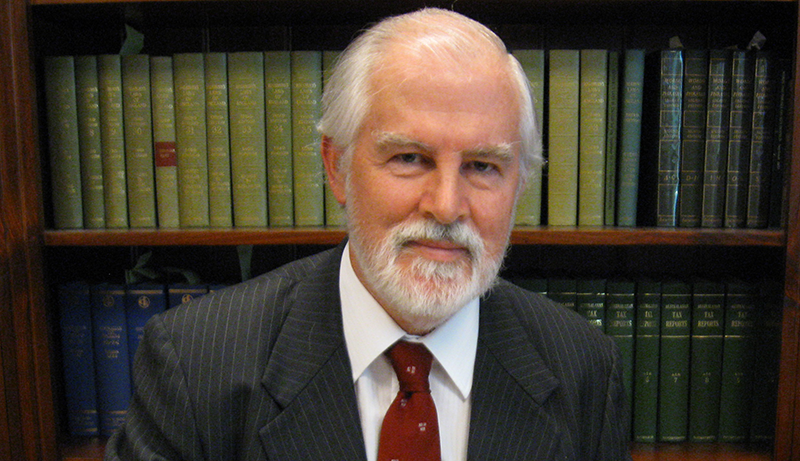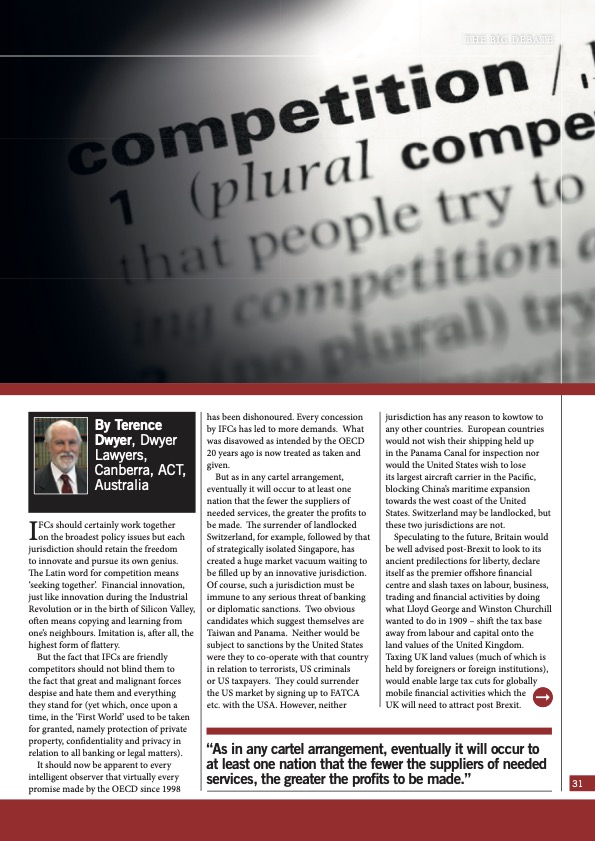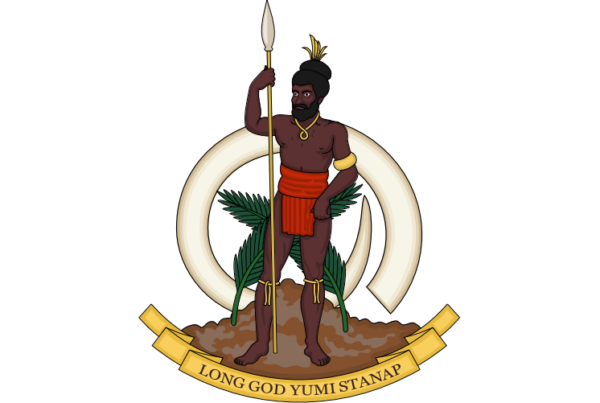By Terence Dwyer, Dwyer Lawyers, Canberra, Australia
International Finance Centres (IFCs) should certainly work together on the broadest policy issues but each jurisdiction should retain the freedom to innovate and pursue its own genius. The Latin word for competition means ‘seeking together’. Financial innovation, just like innovation during the Industrial Revolution or in the birth of Silicon Valley, often means copying and learning from one’s neighbours. Imitation is, after all, the highest form of flattery.
But the fact that IFCs are friendly competitors should not blind them to the fact that great and malignant forces despise and hate them and everything they stand for (yet which, once upon a time, in the ‘First World’ used to be taken for granted, namely protection of private property, confidentiality and privacy in relation to all banking or legal matters).
It should now be apparent to every intelligent observer that virtually every promise made by the OECD since 1998 has been dishonoured. Every concession by IFCs has led to more demands. What was disavowed as intended by the OECD 20 years ago is now treated as taken and given.
But as in any cartel arrangement, eventually it will occur to at least one nation that the fewer the suppliers of needed services, the greater the profits to be made. The surrender of landlocked Switzerland, for example, followed by that of strategically isolated Singapore, has created a huge market vacuum waiting to be filled up by an innovative jurisdiction. Of course, such a jurisdiction must be immune to any serious threat of banking or diplomatic sanctions. Two obvious candidates which suggest themselves are Taiwan and Panama. Neither would be subject to sanctions by the United States were they to co-operate with that country in relation to terrorists, US criminals or US taxpayers. They could surrender the US market by signing up to FATCA etc. with the USA. However, neither jurisdiction has any reason to kowtow to any other countries. European countries would not wish their shipping held up in the Panama Canal for inspection nor would the United States wish to lose its largest aircraft carrier in the Pacific, blocking China’s maritime expansion towards the west coast of the United States. Switzerland may be landlocked, but these two jurisdictions are not.
Speculating to the future, Britain would be well advised post-Brexit to look to its ancient predilections for liberty, declare itself as the premier offshore financial centre and slash taxes on labour, business, trading and financial activities by doing what Lloyd George and Winston Churchill wanted to do in 1909 – shift the tax base away from labour and capital onto the land values of the United Kingdom. Taxing UK land values (much of which is held by foreigners or foreign institutions), would enable large tax cuts for globally mobile financial activities which the UK will need to attract post Brexit.






